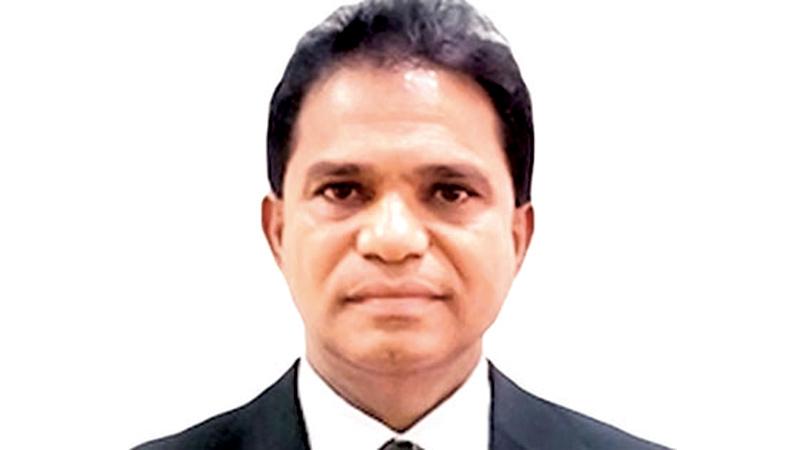
The International Monetary Fund (IMF) is predicting a quarter (.25%) per cent loss on GDP, approximately US$213 million, due to the increase in thermal power generation by the Ceylon Electricity Board (CEB) this year.
The latest review of the International Monetary Fund (IMF) on Sri Lanka’s economic performance under the three-year extended arrangement under the Extended Fund Facility (EFF) arrangement published in July makes this prediction, stating that an “increase in thermal power generation in late 2016 – early 2017 could - at current tariffs, inflict financial losses of about .25% percent of GDP for the CEB, the state electricity company. This will eventually raise public debt if not covered by future tariff increases.”
Translated into rupees, this is an additional cost of Rs 32 billion Sri Lankans will have to shoulder due to poor planning and possible corruption in the power sector, which is relying more on very expensive private thermal power, mainly diesel fuel, to meet base power requirements. Base power is what is needed at peak hours, from 1800 to 2200 hrs, when renewable power sources other than hydro are not available to the national grid.
According to the CEB, more than 25% or 9.93 GWh of the total power generated on Friday, August 11, came from private energy suppliers, with reservoir storage of all the hydro plants now below 499.7 GWh or 12 days supply if only hydro is used to generate the approximately 40GWh Sri Lanka used on Friday.
A breakdown of power generation obtained from the CEB shows that in addition to the 25% thermal power generation obtained from private sources, another 15% or 5.94 GWh power was generated in-house by CEB using diesel fuel while the Norocholai Power Station (Lakvijaya Coal Power) produced 34.5% of the total power generated or 13.69 GWh. Lakvijaya has a nameplate capacity of 900 megawatts per hour, but most days falls down to 600 megawatts per hour.
In this scenario, highly placed political authorities are perturbed over the failure of the Ministry of Power and Renewable Energy to obtain cheaper, more stable source of power to meet the base load demands, despite the Ministry´s Secretary, Dr. Suren Batagoda pointing out a major power shortage by 2018 in a highly publicised letter to the CEB in July 2016.
Dr. Batagoda told the Sunday Observer yesterday that nearly 800 megawatts of power generation tenders would be floated with the next couple of weeks. These include a100 MW barge mounted furnace oil plant to be in located at the Galle harbour, four 25MW solar plants in addition to three 10 MW solar plants for which tenders opened earlier this month, two large 100 MW solar plants in Moneragala and Punarine and another 100 MW diesel emergency supply to be contracted for one year. However, sources were to point out that these will only add 200 MW of power at base load and both these are expensive diesel and furnace oil plants.
The much anticipated and controversial 300MW Kerewalapitiya LNG plant, which was to be an Indian / Japanese joint venture may now see a further delay.
The Prime Minister will ask the cabinet to cancel this tender and request a completely new tender to be floated with very tight timelines, a highly placed source told the Sunday Observer.
“The tender became controversial after six of the eight tenderers were disqualified at the Technical Evaluation due to a serious lapse by these tenderers where they did not follow a very clear addendum to the tender documents made after a pre-bid meeting. The addendum, which was received by all registered tenderers, stated that the plant should be ready for LNG from the first day of operation,” the source said.
The seventh tenderer was disqualified due to a difference in the plant capacity with only the eighth tenderer, a consortium of Korean companies, including Samsung and Hyundai, making it through to the financial evaluation stage. The six (and the seventh tenderer who was disqualified primarily due to a mismatch in capacity) tenderers had indicated that their plants will run initially on diesel or furnace oil, with diesel costs being three to five times more expensive than LNG and furnace oil being two to three times more expensive than LNG.
“Meanwhile, when the financial bid by the Korean consortium was opened amidst heavy opposition by other tenderers, there was no hard copy of the financial bid and the soft copy could also not be opened,” the source said.
“This was unbelievable – these are some of the top global companies – and there was no proper financial bid for a multi-billion dollar power station,” the source said indicating that the Cabinet of Ministers will also be asked to refer the tender process to the FDIC for investigation for possible corruption of the process and people.
